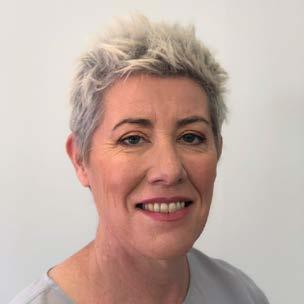
11 minute read
From the CEO
LOOKING TO THE FUTURE
From the CEO
Advertisement
Welcome to the first Pallium of the year and happy New Year to all!
I would like to start this report by acknowledging our members in the field of palliative care as well as more broadly those working in healthcare for the incredible work that has been carried out throughout the past two years during the COVID-19 pandemic. Let’s hope we can look to a future that leaves the worst behind us.
Fortunately, PCNSW as an organisation has weathered the COVID storm well. For the Management Committee it has been wonderful to work closely with our new committee members from different sectors of palliative care and share ideas and concerns when we have met via zoom each month.
We were fortunate to have the opportunity to meet together in person as a committee before the various lockdowns. At these sessions we worked hard to develop the PCNSW Strategic Plan. I am confident that we have addressed the needs and concerns of our members as well as the palliative care community in NSW moving forward. You can view the Strategic Plan 2021–2024 on our website.
I continue to work closely with the Ministry of Health regarding funding and support, and in the past year you may have noticed the $82.8 million funding announcement from the NSW Treasurer and Health Minister. This was a welcome boost, and we will continue to advocate for this support to continue.
In the past few months our focus has been on the needs of palliative care in light of the VAD discussions currently happening in NSW Parliament. PCNSW neither advocates for, nor argues against, the legislation of voluntary assisted dying. We believe this is a decision for governments. In our discussions with various Ministers, including the Health Minister and the NSW Premier, we have focused on the need for equity of access to, and information about, palliative care and an ongoing commitment to our sector should the legislation come to pass.
While it is important we acknowledge the challenges we have faced in palliative care throughout the past year and a half, we have also skills that will support us in the future. With 40 years behind us we look forward to supporting you and your work for 40 more!
Enjoy your Pallium.

Linda Hansen
PCNSW Chief Executive Officer

Moments…
By Deb Everett, Psycho-oncology Counsellor
The following story belongs to Jack and Mary, for these are ‘their moments’ that Jack has been kind enough to share. (The following has been de-identified).
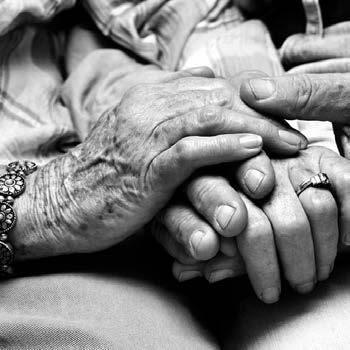
Isat with Jack yesterday and felt inspired to write this brief, but important and touching moment of his journey … Jack is an 83 year old gentleman who lives in an RV in a caravan park on the NSW side of the river, from Mildura. Jack’s wife, Mary, who is affected by dementia, moved into a Residential Aged Care Facillity (RACF) in Mildura earlier this year “until Jack’s cancer gets better”. Jack has a palliative diagnosis (lymphoma).
I sat with Jack, under the gumtrees, (socially distanced and masked – as per the current requirements) with the wind blowing an absolutely gale, the morning after a night of wind and thunder. He wanted to tell me about the visit he’d had with his wife the day prior. You see, this was a very unexpected visit, as he didn’t know he was allowed to bring his wife home for a few hours and so this occurred as a moment of chance, rather than as a matter of good communication, planning or processes.
Once Jack knew he could bring Mary home for a visit … her first visit since going into care, Jack decided to prepare for her visit. Jack told me about how he has been colouring Mary’s hair for the last 20 years and he knew how unhappy she was with the current variation in colour, so he drove his truck into Mildura to buy his wife’s preferred hair colour and some food for a meal to share during her visit. Not just any meal …
First things first though, after arriving home, Jack proceeded to colour Mary’s hair – an important part of Mary’s identity. Jack then described how he cooked and prepared $100 worth of rock lobster and chilled it in readiness for them to share. He then prepared fresh gnocchi and a spicy ‘satay-like’ sauce. He’d chosen a pink Moscato and chilled this – a lighter wine as he didn’t want to return Mary to the nursing home intoxicated. After the meal, Mary returned to their kitchen, doing the dishes and putting them away, as she normally would have done. She then recognised and commented on Jack looking tired and recognising that he was missing his ‘Nanny’ nap. With that, she told him that if he took her back (to the nursing home now) he would still have time for his nap.
As Jack described this to me, there were many tears (as he carefully used one hanky for his nose and one for his eyes), smiles … and much love. As counsellors do, I asked him how this made him feel? And, through his tears, as he let go of his breath, he could barely say “happy … it made me feel happy.” After we sat with this feeling for a moment, I asked his permission to share with Jack what I’d heard …
What I heard Jack say was, that in this moment he felt ‘normal’, like he was a husband again, that Mary felt like his wife again and that in this moment they were a couple again. In this moment he was her husband, not a carer. In this moment, Mary also demonstrated insight into his needs and supported him to meet these. Mary was also able reassure him that she was okay (in the nursing home). Not bad given that Jack had shared with me that he’d thought he was going to have to “knock Mary on the head” to get her to go back to the nursing home.
Jack related to each part of this reflection and we further reflected that this one is “a moment to hold.”

Timing is everything isn’t it? It was just the night before that I had listened to Rob Grenfell (an advocate for dementia), speaking about his journey with his wife (who had a diagnosis of early-onset dementia) and having to be ready to “let her fall into the arms” of other carers and how difficult this was. I also listened to Christine Bryden who had been advisor to the Prime Minister’s office and diagnosed with dementia. She spoke about her experience of being treated as though she was ‘lost to dementia’ and she articulates very clearly that she has lost her memory, but not her ‘story’ and that she just needs help to connect with her story and that in doing this, she is connecting with her ‘self’.
In this moment, this is exactly what Jack and Mary were doing … they were connecting with themselves and each other. In this moment Mary was no longer identified by her dementia and Jack was no longer her carer, they were a couple.
I am so privileged to have shared their story, as it is theirs. I really, only took the time to listen … to really hear what was being said. So often we rush people when they’re sharing their story, in order to get to the other side, or hurry them up to deal with the business that we want to deal with. The world we live in is busy and these are the realities of this, but sometimes the gift of listening is the greatest ‘therapeutic’ intervention we can offer.
As I finish up in my role of Psychooncology Counsellor in the Cancer and Palliative Care team, I just wanted to share this as ‘one last moment’ as there are many I will carry forward with me. To Mel and the team, keep up the great work!
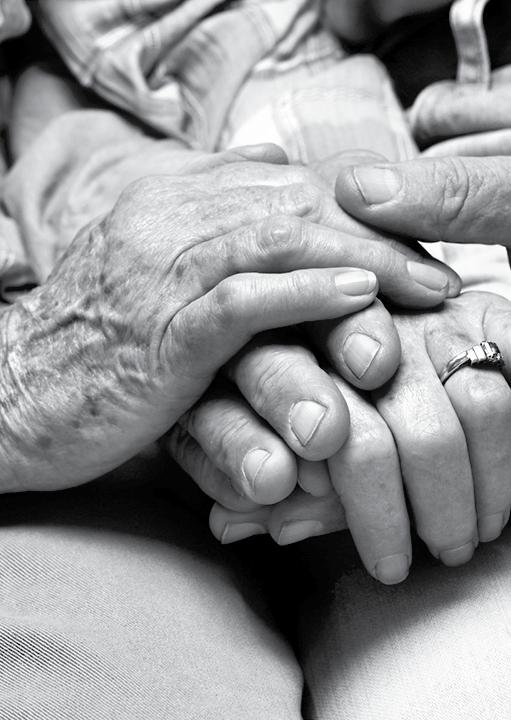
28th October 2021
We thank Deb Everett and Melissa Cumming from FWLHD Cancer and Palliative Care for sharing these moments with us
Community CELEBRATING 40 YEARS

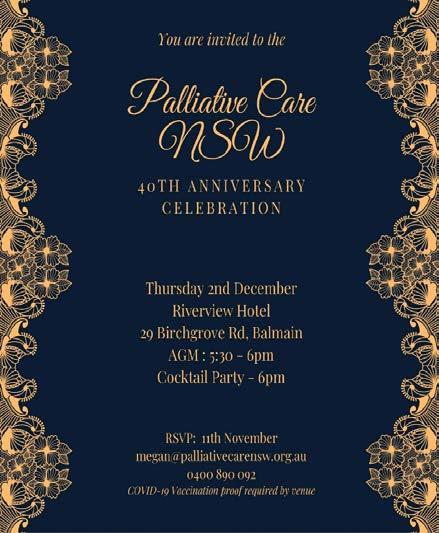
Palliative Care NSW
40th Anniversary Celebrations
Five PCNSW former and current presidents and current CEO Linda Hansen, were just some of the members who celebrated our 40th Anniversary at The Riverview Hotel Balmain on Thursday 2nd December 2021.
About 60 people attended the anniversary/Christmas party and we were all very pleased to be meeting each other face-to-face after the long COVID lockdown.
Highlights of the evening included the re-election of Therese Smeal as president elect. Therese has been a stalwart president, guiding us through the past few difficult years. It’s very pleasing to know we have her continuing guidance into the future.
Guest speaker Liz Junck, Director, Director, Primary and Community Care Unit, Health and Social Policy congratulated PCNSW staff, committee and members for our collective resilience and urged us to continue our work and commitment to providing quality palliative care for all. We look forward to continuing our work in 2022.
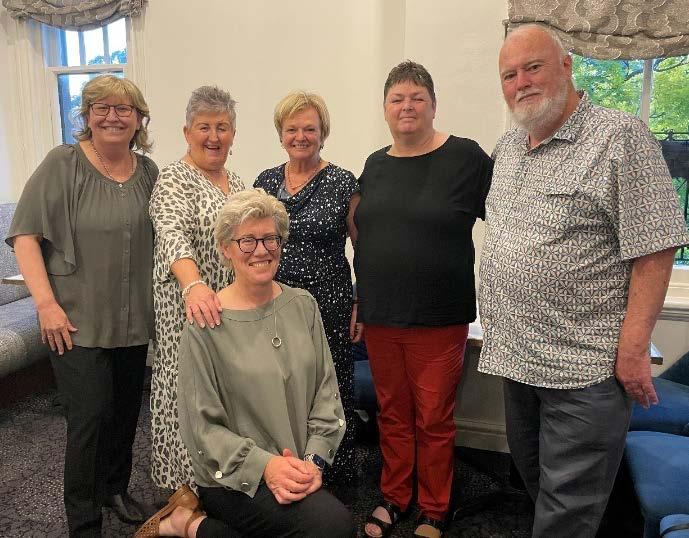
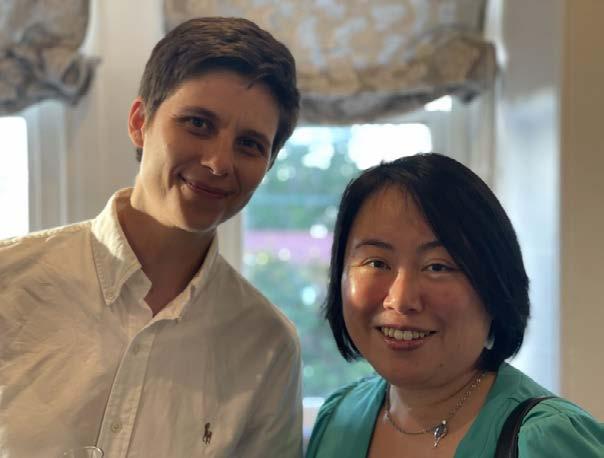
Left: Five PCNSW former and current presidents (L–R) Carolyn Walsh, Therese Smeal (current), Maree Banfield, Deb Parker, Peter Cleasby and current CEO Linda Hansen. Below left: Current Treasurer Nicole Sutton with committee member Carmen Sanchez. Below right: Dr Josephine Clayton and other members during presentations.
40 YEARS
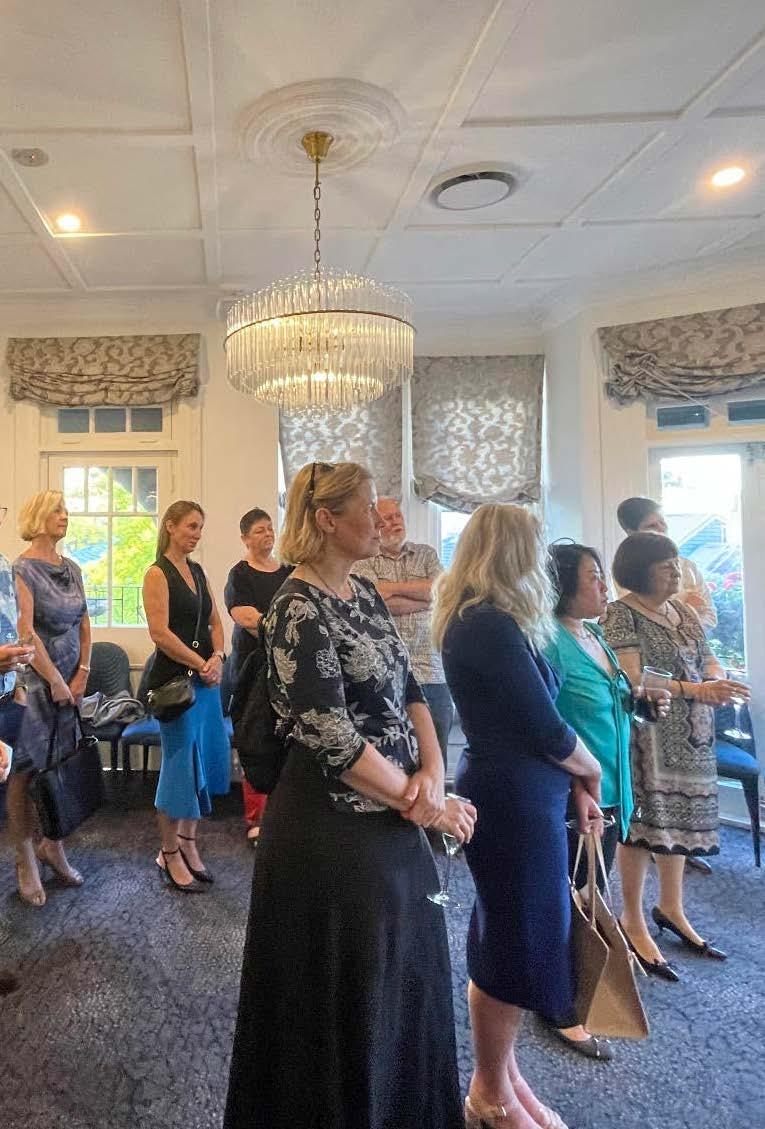
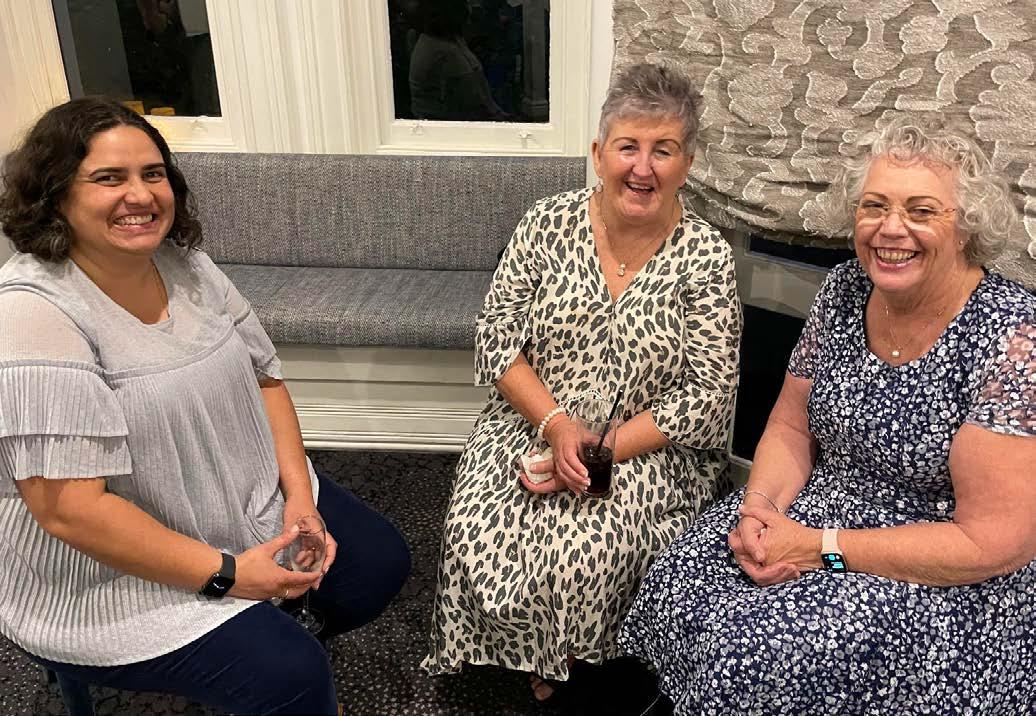
Left: Professor Meera Agar, Therese Smeal and current committee member Colleen Carter. Below left: Current committee member Felicity Burns, Maree Banfield and Nicole Sutton. Below right: Some of the attendees, happy to be meeting face-to-face Below: Janeane Harlum, Carolyn Walsh and Megan Mitchell.
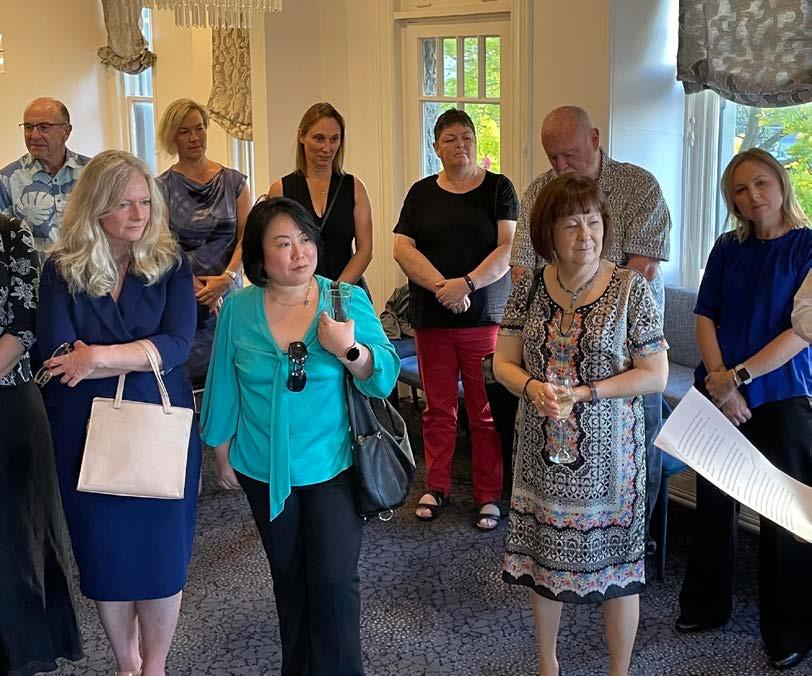
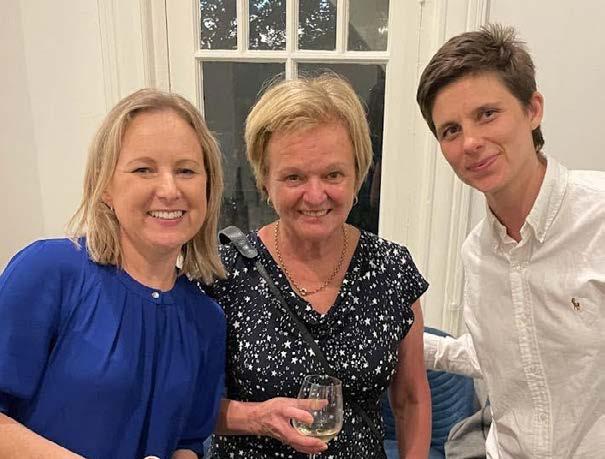
CELEBRATING 14 | Pallium
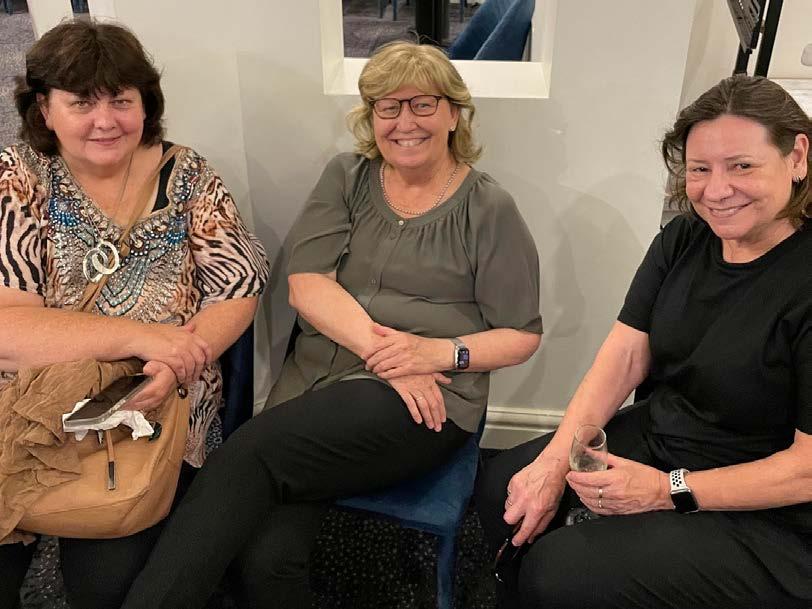
A little bit of history…
In the early days the focus was on clinical education and research. Since then we have also developed services and education… and worked to promote palliative care in community settings.
This organisation owes its existence to the vision of Dr Fred Gunz, an Oncologist, who upon returning from Conference in Montreal was inspired to create a state organisation. The first PCNSW meeting was held in September 1981, where committees were established, including the research committee. Data was generated on cancer mortality and place of death that was subsequently passed onto NSW Health and formed the agenda for discussions, leading to the recognition of palliative care as a legitimate element of health care delivery.
Our first palliative care seminar was held Concord in 1982 and the first travel grant was awarded for the International Conference on Terminal Care in Montreal. That tradition continues today. In the early days the focus was on clinical education and research, predominantly on cancer and the value of palliative care. Since then we have also developed services and education around palliative care for indigenous people, CALD populations, vulnerable and disabled people, paediatric care and worked to promote palliative care in community settings.
The first paid role of Executive Officer was occupied by Judith Ford until early 2002. Sheila Carey ran PCNSW as a volunteer until Paul Washington was appointed later in November 2002. When Paul left, Sheila took over the reigns again until Linda Hansen arrived in 2004, and hasn’t left!
Our first website was up and running in 2002. Before then, we could only be contacted by phone, snail mail or fax – and Pallium was originally written and printed by a team of five, plus an editor, then mailed out to members.
These days, we more fully appreciate the role of the arts in death and dying – self-care for healthcare workers and carers – we have a broader understanding of complex grief and bereavement and recognise the importance of allied health teams in the management of palliative care patients and their families. All these concepts would have been almost unfathomable in 1981.
While a lot has changed since 1981, some things stay the same. The enthusiasm and passion that inspired Dr Fred Gunz in 1981 is still present in our dedicated leaders, committee members, staff and members.



